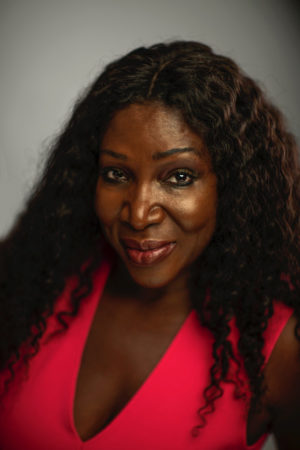
In December 2015, Ebony Reigns burst onto the music scene with her hit single, “Dancefloor,” and shattered what remained of female coyness in many West Africans. Prior to that, singers like Mzbel had broken norms by openly expressing their sexuality, but none so raw. “Dancefloor,” an allegory of a girl seized with desire, shows the advances we have made in liberating women from sexual repression. Not long ago, there was a clear delineation between good girls and bad girls in Ghana and many other countries. Good girls went to school, preferably all girls’ secondary schools. During holidays, they mostly stayed at home. They were ladies, or in the Fante word, “Akatasia”, a portmanteau of the words cover and hide. Thus good girls weren’t exhibited except during puberty rites in villages. Women of good morals dared not demonstrate desire, much less luxuriate in it. In her short life, Ebony blurred the gap between good girl and bad girl.
Sexual timidity in women originates in childhood. When babies eat from breasts, they tend to touch their mothers and themselves as a way of connecting. They have no concept of right and wrong, so they do whatever feels good, and feeding is intensely pleasurable to them. However, right from infancy, when a girl’s fingers stray near her genitals, her hands are swatted away for fear she will grow up sensual. As she gets older, parental fears increase and inspire greater degrees of punishment, from smacking the bottom to downright torture. In my novel, Of Women and Frogs, when eleven-year-old Esi is caught with a mirror between her legs, her stepmother inserts ginger into her anus, some running into her vagina. In her memoir, Stolen Lives, Malika Oufkir describes her male tutor inserting a key into her vagina and twisting it to punish her. This communicates to her, and girls in general, that contact with the flesh between their legs is taboo. It’s a proxy war on women. Girls raised this way are unlikely to express themselves sexually in adulthood.
In “Poison”, Ebony languidly intones the addictive power of sex. Call it poison, she says, knowing what society would say to a woman unleashing the full force of her sensuality. She describes herself as a pleaser, the bearer and teacher of pleasure. For many, this is transgressive, invoking the woman as an agent, the initiator and decider in sexual acts. In the accompanying video, she is stretched out on a lounge chair, her hair tousled, her soft outfit blowing lightly in the wind. She indicates that sex is simple, beautiful and should be consumed without fear. To be clear, nowhere does she advocate promiscuity, contrary to people’s misinterpretation. In fact, she points out that having multiple partners leads to dissatisfaction and sadness, as illustrated in her award-winning song, “Sponsor”. She implies that indulging in financial arrangements or hook-ups with rich old men who are afflicted with waist pain and erectile issues can only lead to sexual frustration. What Ebony appears to be advocating is the quality or intensity of moments, rather than rampant consumption of sex. Thanks to the likes of Ebony and Botswana singer, Lorraine Lionheart (“Keke-Na-Pepe”), today’s African woman prides herself in her ability to express and, in fact, initiate intercourse with her partner. Women are learning to eschew coyness. Female sexuality is now embraced.
Sexuality and intellect aren’t mutually exclusive, as society seems to think. Although Ebony didn’t pursue higher education, interviews with close acquaintances indicate she possessed superior intellect. Most sexy women are, in fact, highly intelligent. Talented, sexy women include Nicole Amarteifio, creator and director of the hit show, An African City. The actresses reflect today’s woman, accomplished and endowed, with a healthy libido. One of the greatest poets in history, the Greek genius, Sappho who is presumed to be bisexual, wrote frankly about sexual pleasure and dressed in revealing clothes. Erica Jong, who penned many books detailing her character Isadora’s sexual frustration and exploits in Fear of Flying and How to Save Your Own Life, has an Ivy League education, holding degrees from Barnard College and Columbia University.
Another area of liberty for women is in their sartorial choices. Female singers are often rebuked for their sexy outfits while men aren’t criticized for wearing next to nothing on stage, and yet, in a survey of city dwellers, 90% of Ghanaian men declare they are tired of having to choose between the modestly clad woman and the sexy one. They are no longer stuck on women who come across as morally superior, proud and turn out to be lumps of ice in the bedroom. For a man, sexual pleasure is enhanced by what he perceives to be his effect on his partner. Thus men, in theory, no longer have to experience sexual pleasure from prostitutes alone. In fact, men confess to adoring primal desire, and with good reason. Sensual women are just as capable of deep loyalty and faithfulness. This bears up in a survey of urban women between the ages of 25 and 40. Those who consider themselves shy and modest are more likely to cheat on their partners than independent, free-spirited women. Those who suppress their desires in order to appear respectable are more susceptible to temptation and likely to have secret liaisons. At the age of fourteen, Esi, in my novel, notes that the vagina resembles a pair of lips. It is not an accident of creation. A woman possesses two mouths, one visible and the other in her nether region. Both are for eating. Neither is to be neglected.
Sex is not only good for young women, it is vital for older women. Studies indicate that women need regular intercourse, especially those approaching menopause and beyond. Regular sex stimulates the production of estrogen which depletes as women age. While some females need to ingest artificial estrogen, sexual secretion and orgasms help the body fight off aging. Unfortunately, this is the time husbands tend to lose interest in their wives. Perhaps in wanting to resurrect their own waning libido, they court younger women, thus neglecting their wives. Recently, in a radio address on Adom FM in Ghana, the paramount Queen Mother of Mankesim, Nana Ama Amissah, bemoaned this very point. She said many women in the Central Region were aging because of sexual deprivation, and urged men to change their ways. She attributed a current rise in marital infidelity and divorce to women having to seek sexual satisfaction outside the marriage. Men tend to be smug in their pursuit of extramarital relations, assuming their women are staying put at home. Unlike men, who are not good at multitasking, women possess the ability to juggle multiple issues while dissimulating. While self-gratification provides relief for women, the very isolation of the act can be frustrating and depressing in the long run. The real solution is regular sex with an appreciative and loving partner.
As much as women need sex, they are the very ones likely to judge their fellow women harshly. Ebony shares the fate of female musicians, including Mzbel and Miss Vee, who have been vilified for their honesty. When a woman expresses herself through her dressing, other women are likely to give her the evil eye. In several Facebook posts after Ebony’s death, although they expressed sorrow for her, many churchgoing women talked about feeling guilty for loving her music, as though Ebony had caused them to indulge in sin.
While we are experiencing a shift towards a more positive view of female sexuality, there is room for growth. Some in society, particularly the clergy, criticized Ebony’s parents for allowing her freedom of expression. So-called prophets prophesied her impending death, almost wishing for it, and when it did occur, they gleefully claimed validation. No one has attacked male musicians in the same way. While women are judged by their appearance, they have to endure watching men cup their penises and testicles in public whenever they feel the urge. A man can whip out his penis and urinate wherever he pleases, whereas a woman squatting by the roadside to urinate gets yelled at for indecent exposure. Female athletes are criticized when their nipples poke through their blouses while men can be bare-chested, as though women do not find the bean-sized nipples of men alluring. We need to strip away this hypocrisy.
It’s time to abolish the law requiring secondary school girls in Ghanaian public schools to sport boyish haircuts. Although the reason for this was ostensibly to help girls focus on their studies, it is a widely held view that school girls are blamed for men’s infidelity. In the past, older women sometimes yelled at busloads of school girls coming to Accra for the long vacation: “Sukuu girls amɛ ba eee, nyɛmᴐmᴐ nyɛwumɛ iamli ojogba” meaning “School girls have arrived ooo, hold fast onto your husbands!” – shifting the blame for men’s infidelity onto women, absolving men of responsibility. The argument that short hair improves academic performance does not hold, evidenced by high-achieving schools like SOS Herman Gmeiner International College and Ghana International School, and schools in countries whose girls do not have to cut their hair.
We would do well to pay heed to Ebony’s song released posthumously, “Kᴐnkᴐnsa Police”, meaning “gossip police”, a reference to people making it their business to comment on other people’s lives. Sexual desire is primal, necessary, must be satisfied. How a woman chooses to express it, whether in her wardrobe or art, is her business. As Ebony would say, “Ɛfa woho sɛn?” Is it any of your business?
Post image via artist’s instagram @ebony_reigns
*********
About the Author:
 Bisi Adjapon is the author of Of Women and Frogs. Her writings have appeared in journals and newspapers including McSweeney’s Quarterly, Washington Times, Daily Graphic and Chicken Bones. She founded and ran The Young Shakespeare company for four years in America. The short story version of Of Women and Frogs was nominated for the Caine Prize by Dave Eggers.
Bisi Adjapon is the author of Of Women and Frogs. Her writings have appeared in journals and newspapers including McSweeney’s Quarterly, Washington Times, Daily Graphic and Chicken Bones. She founded and ran The Young Shakespeare company for four years in America. The short story version of Of Women and Frogs was nominated for the Caine Prize by Dave Eggers.
As an International Affairs Specialist for the U.S. Foreign Agricultural Service, she won the Civil Rights Award for Human Relations, and a Strategic Objective Award for her work on the Norman Borlaug Capacity Building Fellows targeting women in developing countries. She holds degrees in French and Spanish and has worked in several embassies, and taught and managed projects in Latin America and Africa.
Currently, she divides her time between Ghana and America.








Daniel Adjokatcher February 10, 2022 03:18
Well articulated, interesting piece. I'm curious about the surveys Bisi references in the article-are these surveys she did herself, or were they done by others? Just wondering aloud.